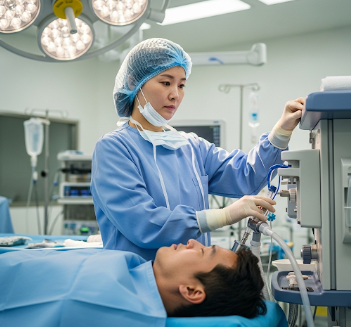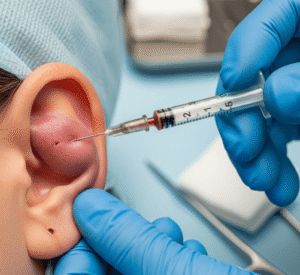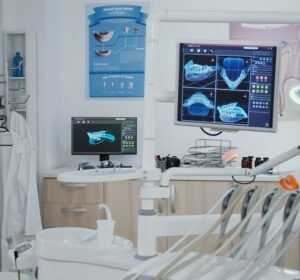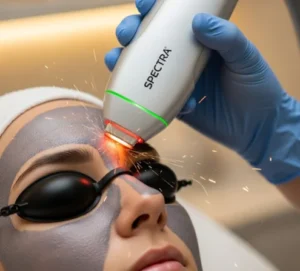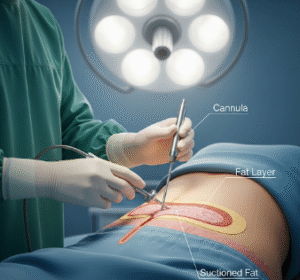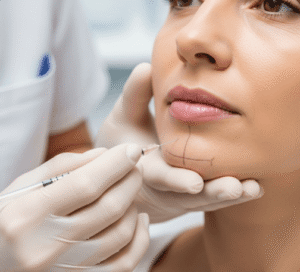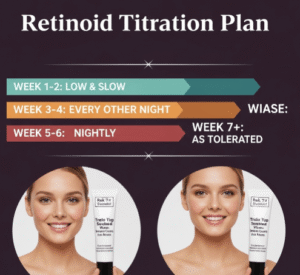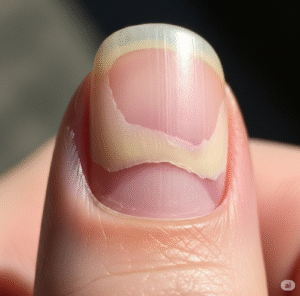Overview
Anaesthetics are medications used to prevent pain, discomfort, and awareness during surgical procedures or medical interventions. They play a crucial role in modern medicine, ensuring patient safety, comfort, and procedural success. Anaesthetics also allow doctors to perform complex surgeries, diagnostic procedures, and pain management therapies effectively.
In Korea, anaesthesia is administered in highly advanced hospitals and surgical centers by board-certified anesthesiologists. Korean hospitals utilize state-of-the-art monitoring equipment, modern anaesthetic drugs, and post-operative care protocols to ensure optimal patient outcomes and safety.
What is Anaesthetics?
Anaesthetics are classified based on the type of effect, duration, and route of administration. Their primary purpose is to temporarily block sensation, reduce pain perception, or induce unconsciousness during medical procedures.
Types of anaesthesia:
- General Anaesthesia
- Induces complete unconsciousness
- Used for major surgeries like heart, brain, or abdominal surgery
- Administered via intravenous drugs and inhaled gases
- Regional Anaesthesia
- Blocks pain in a specific region of the body
- Includes spinal, epidural, or nerve block techniques
- Commonly used in orthopedic, obstetric, or lower abdominal procedures
- Local Anaesthesia
- Numbs a small, specific area
- Administered via injection, cream, or spray
- Often used in dental procedures, minor skin surgeries, or biopsies
- Sedation (Conscious Anaesthesia)
- Provides relaxation and reduced awareness
- Patient remains responsive but calm
- Used for endoscopy, minor surgeries, or diagnostic procedures
What are the benefits?
- Pain relief during surgery and medical interventions
- Reduced anxiety and stress for patients undergoing procedures
- Allows safe performance of complex or invasive surgeries
- ✅ Customizable: Type and depth of anaesthesia can be tailored to patient and procedure
- ✅ Minimizes movement during surgery, ensuring precision
- ✅ Post-operative recovery is monitored and managed to prevent complications
Procedure Details
1) How should I prepare for Anaesthesia?
- ➤ Preoperative assessment by an anesthesiologist, including medical history, allergies, and medications
- ➤ Fasting instructions: Avoid food and drink for a specified period before surgery
- ➤ Discuss existing medical conditions, such as heart, lung, liver, or kidney disease
- ➤ Inform your doctor about previous anaesthetic experiences or complications
- ➤ Arrange for post-operative transportation, as some anaesthesia types affect alertness
2) What happens during Anaesthesia?
- ✅ Monitoring: Heart rate, blood pressure, oxygen levels, and respiration are continuously tracked
- ✅ Drug administration: Anaesthetic medications are given intravenously, inhaled, or applied locally
- ✅ Induction: Patient transitions from awake to sedated or unconscious state (for general anaesthesia)
- ✅ Maintenance: Anaesthesia is adjusted throughout the procedure to ensure safety and effectiveness
- ✅ Patient is continuously monitored for vital signs, oxygenation, and anesthetic depth
3) What happens after Anaesthesia?
- ➤ Patient is moved to a recovery room (Post-Anesthesia Care Unit, PACU)
- ➤ Vital signs and consciousness are closely monitored
- ➤ Pain management and nausea control are provided as needed
- ➤ Gradual return to normal activity, with specific instructions for rest, diet, and medications
- ➤ Follow-up may be necessary to address any side effects or complications
Risks / Benefits
Potential Risks:
- ➤ Nausea, vomiting, or dizziness
- ➤ Sore throat (from breathing tube)
- ➤ Allergic reactions to anaesthetic drugs
- ➤ Rare complications: heart or lung problems, nerve injury, or prolonged recovery
- ➤ Cognitive issues in older patients (postoperative delirium)
Benefits:
- ✅ Provides pain-free surgery and interventions
- ✅ Enables complex procedures that would otherwise be intolerable
- ✅ Reduces patient anxiety and stress
- ✅ Allows precise surgical work with minimal movement
- ✅ In Korea, anaesthesia is delivered with advanced monitoring and high safety standards
Recovery and Outlook
- Immediate recovery: Patients are observed in the PACU until fully awake
- Activity: Gradual return to normal activity based on type of anaesthesia
- Follow-up: Monitoring for delayed side effects, especially in high-risk patients
- Long-term outlook: Most patients recover fully without complications
- Lifestyle: Adequate rest, hydration, and following physician instructions help speed recovery
When To Call the Doctor
- ➤ Severe pain not controlled by prescribed medication
- ➤ Prolonged drowsiness or confusion
- ➤ Fever, shortness of breath, or chest discomfort
- ➤ Persistent nausea, vomiting, or difficulty swallowing
- ➤ Unusual reactions at injection or surgical sites
Best Korea Option / Process
- ✅ Korea offers highly specialized anesthesiology teams for all types of procedures
- ✅ Hospitals provide preoperative assessment, intraoperative monitoring, and post-operative care
- ✅ Advanced equipment ensures patient safety, accurate drug dosing, and rapid intervention if needed
- ✅ International patients benefit from VIP coordination, English-speaking staff, and personalized care plans
- ✅ High safety standards and skilled anesthesiologists make Korea a preferred destination for complex surgeries requiring anesthesia

